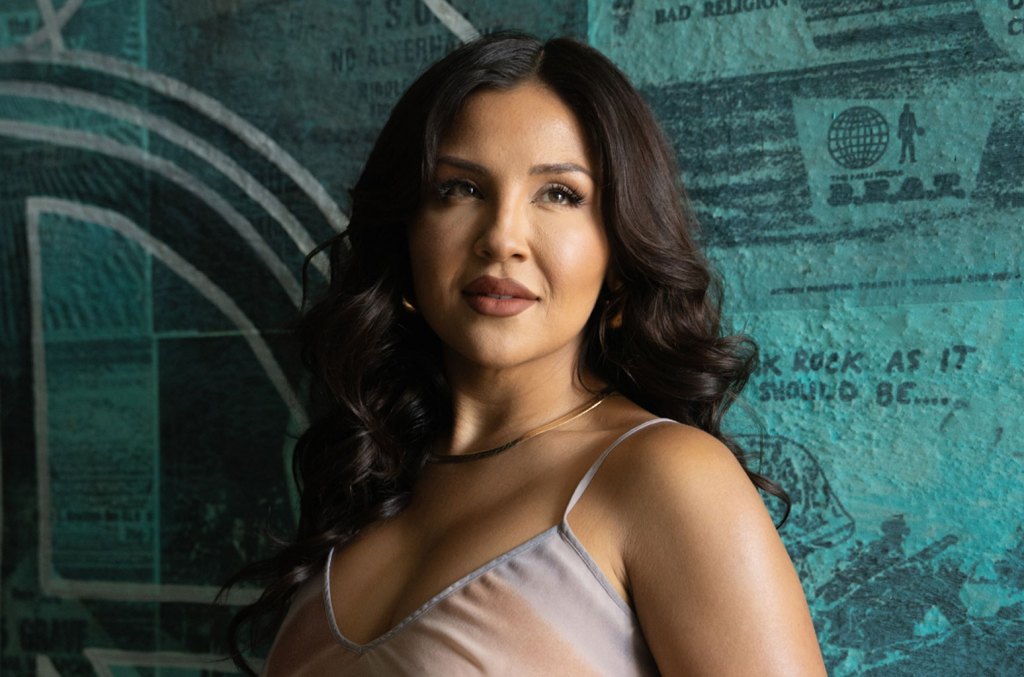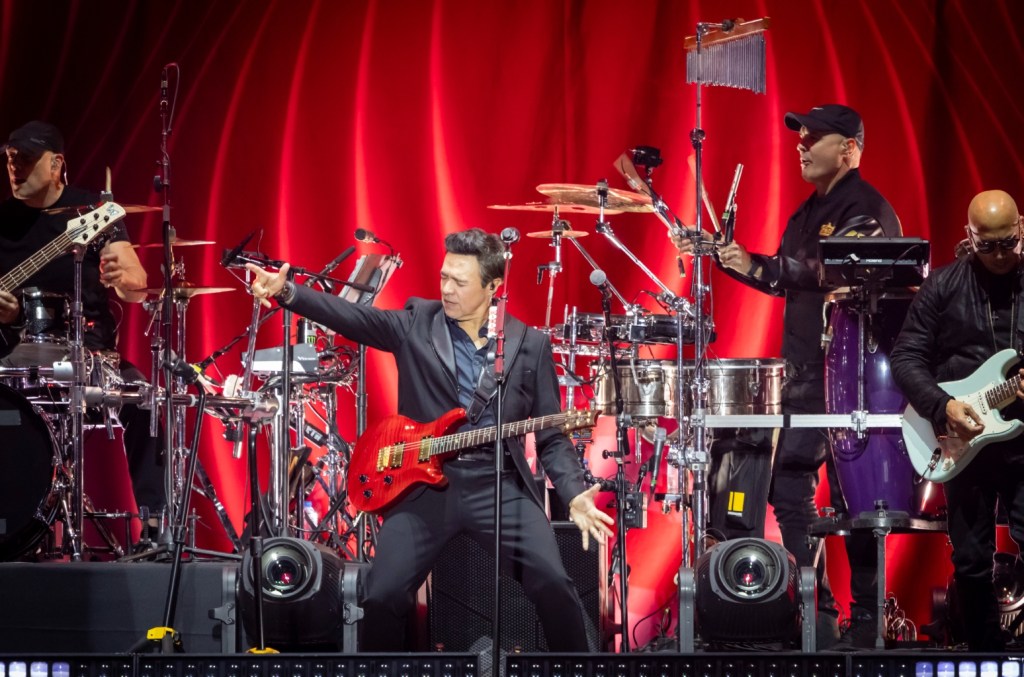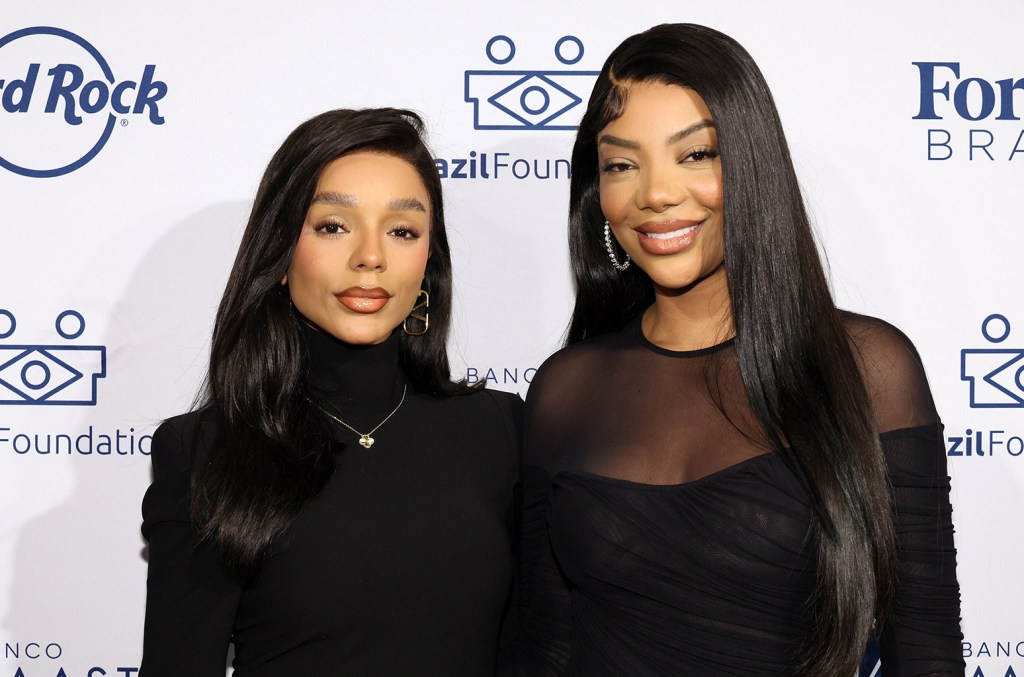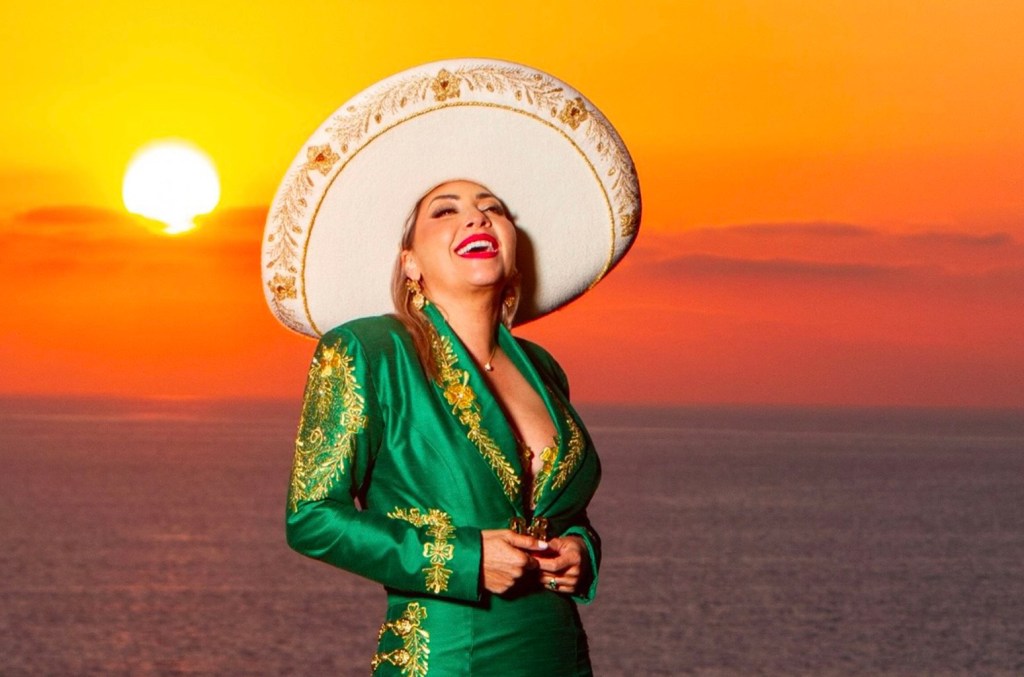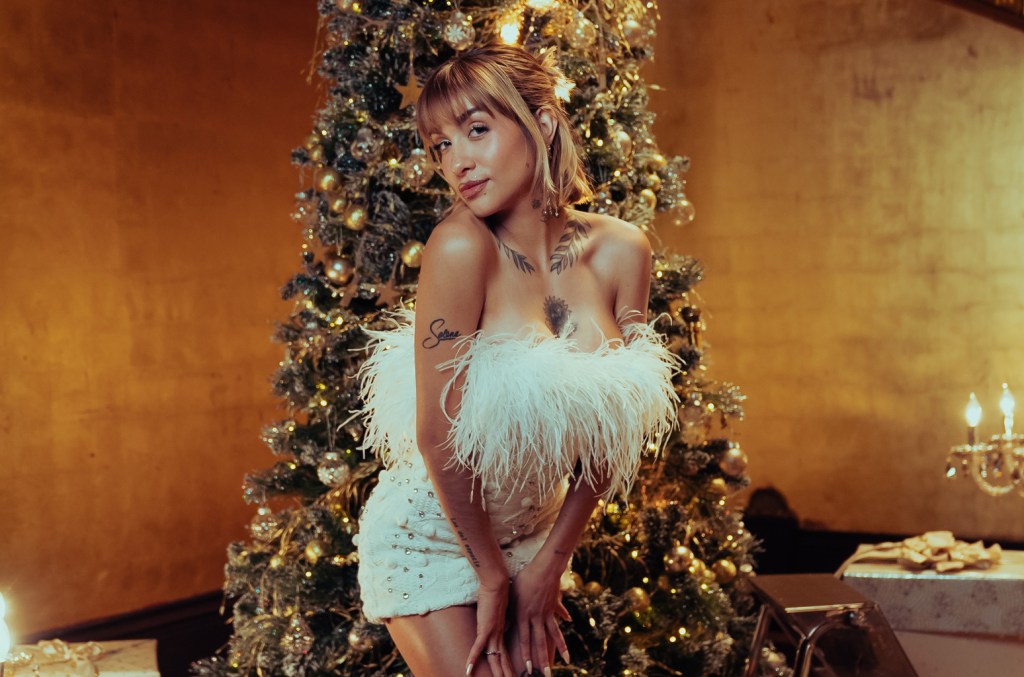The first time Annie Gonzalez was invited to audition for the role of Jenni Rivera in the upcoming biopic JENNI, the actress passed on it. It was right after Flaming Hot came out, she was burned out from the promotion of that movie, and — she can now admit — she was nervous to play the late Mexican-American superstar. Even one week later, when she got a text from a member of the casting team asking if there was a reason she wouldn’t try for it, she couldn’t come immediately to her senses.
“I opened the message and I closed it. I was like, ‘OK, I’m not going to respond,’” Gonzalez tells Billboard Español. “I think for me, being sixth-generation [Mexican-American], and Jenni being so prominent, am I going to be able to do it justice? I respect her as a woman, I respect her as an artist, and I respect and honor those who have passed. I would never want to just take something because I’m selfish. I never look at work like that.”
She instead went to Mexico on vacation, where she was having a good time speaking Spanish and enjoying the local music and culture — when she started having second thoughts. “I think I might want to do it,” she told a friend. “Two days later, I get a call from my manager, and she’s like, ‘Producers really want to see you for the role.’ I go like, ‘OK, I fly back tomorrow. Give me a day.’”
The moment Gonzalez did her audition tape, she had a strong feeling she was booking the role. “But it was a journey,” she explains. “I did multiple producer sessions and director sessions. I even got to meet with [director] Gigi [Saul Guerrero] and that, for me, was the real selling point.”
The final step was meeting Jenni Rivera’s children for their final approval. She recalls them being cautiously doubtful at first, but she won them over a 30 minute call. “So I met with them on Zoom in my makeup, and I did my read with them,” Gonzalez, who is also a phenomenal singer and performs all the songs on the movie, recalls. “I sang for them, and they were like, ‘OK’.” The role was officially hers.
JENNI will premiere on ViX and select theaters in the U.S. and Mexico on December 6. It follows Rivera from her humble beginnings in her hometown of Long Beach, California, to her rise to fame and the last days before her tragic and unexpected death. Known as “La Diva de la Banda,” she was the single most successful woman in regional Mexican music and on the Billboard Latin charts when she tragically died in a plane crash in 2012 at the age of 43.

Annie Gonzalez as Jenni Rivera in JENNI
Courtesy of ViX
A trailer of the movie shows Gonzalez — who is also credited as executive producer — performing Rivera’s early song “La Chacalosa” at a night club. “My life ain’t no fairy tale,” she’s heard saying while the song continues in the background and a collage of scenes shows Jenni’s struggles with teenage pregnancy, domestic violence and stumbles with the law, but also her ascend to stardom and role as the proud mother of five.
Rivera’s life is something the actress could identify with. “I’m from East L.A. hood; she’s from Long Beach hood. My dad’s a musician; [her dad was a musician too],” she says, adding: “I myself am a survivor of sexual assault. I myself am a survivor of domestic violence. I myself am a f–king warrior, and […] yes, this is the story I want to tell. This complex, beautiful, kind woman who found her power on the stage.”
On her first in-depth interview about JENNI, Gonzalez also spoke with Billboard Español about how this movie changed her, her own plans in music and her expectations for the film.
What did you know about Jenni Rivera before? What do you remember the most?
What I remember the most about her was like her fuerza, her fire, her fight. How people loved and fought for her. And Jenni made music for the malandrinas, for the women that were like, “I don’t give a f–k.” But more than that, I think she made music for people with grit, who have been through things, who didn’t feel like they had a space to cry out. That even though the world tried to beat them down, they were going to get up time and time again, that that was not the thing that was going to define them. That’s what I knew about Jenni and that’s what excited me to this beast of a role.
How did you get ready for it?
I didn’t know too much about her personal story until I read her book, and then I watched [Telemundo’s series on Rivera’s life] Mariposa de Barrio, and [her reality show] I Love Jenni and interviews. I did a lot of research. The little that I knew about her was just that that she had this fight that I could identify with: I’m from East L.A. hood; she’s from Long Beach hood. My dad’s a musician [and her dad was a musician too].
I saw myself in her once I learned her story. But I could never emulate this specific energy that this woman was like — We can never. We can try, right? But I’m not going to become her. What I can do is tell her story from a rooted place because I’ve been through it. I myself am a survivor of sexual assault. I myself am a survivor of domestic violence. I myself am a f–king warrior, and I love that when I saw it, I was like, “Yes, this is the story I want to tell. This complex, beautiful, kind woman who found her power on the stage because she couldn’t get it at home.”
How was it for you, as a rape and domestic violence survivor, to go through those difficult scenes?
You know, I think I had about six months leading up to actually shooting the role. And when I went through the script and saw — you know, my whole body was like, creeping and crawling, because there were things that I hadn’t yet wanted to look at in my own life. And I realized that, by avoiding it, there were blockages in me as a woman, just as Annie. And if there’s blockages in me as a woman, there’s going to be blockages in my work. And if there’s blockages in my work, then there’s blockages in my life. How we do anything is how we do everything.
I worked with a therapist very closely towards leading up to it, and then during and after. But I think seeing how she maneuvered through it, and how she used it as a superpower more than something that was going to block her — she created a whole organization to help women. She understood the reason that she has this visibility is for something bigger than herself, even if she didn’t know how to do it.
They say the highest form of love is service. That’s what she did, and she did it at a time when it wasn’t popular. So when I saw that, I was like, all right, I think there’s something here for me to help people that I love. So many women in my family, and even young boys, have been affected by it, by sexual assault.
Is this your first time opening up about these issues?
This is my first time talking about it publicly. Because you do, you can get a lot of backlash, and you know, like, Jenni was a coqueta, she liked to dress the way she dressed, and a lot of the time it’s “Well, why did you dress like that?” It’s like, “No, I was nine years old when it happened. Sorry. No.”
What did you learn about yourself through this movie?
I never felt like my body was my own. I cannot tell you how many relationships or things I said yes to that I didn’t know I could say no to until I got to portray Jenni on screen. Like she helped heal parts of me that I never wanted to look at, that I didn’t even know were there, that now I hold that version of myself so tightly, and I’m so f–king proud of her, and I pray that anybody who watches this gets set free just a little bit more.
You sing on the film as well, and you do it beautifully. Any plans to start a career in music after this?
Yeah, I’ve sang my whole life, but I’ve always been so terrified to do music, because I’ve always felt like if you don’t like my work as an actress that’s okay, you don’t like the character. But if you don’t like my music, you don’t like me. That’s my poetry, that’s my heart. That’s everything that lives inside of me. But as I’m getting older — and honestly, I swear, JENNI transformed me — I live by this quote by George Bernard Shaw, which is essentially like: “I want to burn the candle at both ends when I go.”
You know, when I’m here I have a splendid torch that I get to hold on just for a moment until I can pass it on to the next generation. I’m not going to waste it on being fearful, crying that the world is not going to submit to me or bend at my will. I’m going to fight and have fun doing it. So yes, all that to say, I’m working on an EP.
Can you give us some details? Are you gonna be singing in Spanish? English?
Both. You know, I have a corrido that I’m working on, that my dad wrote that I’m I’m really excited to come out with; I believe it’s gonna come out at the top of December. But right now I’m having fun with figuring out what my sound will be. It’s funny, you know, at this point it’s like I’m already in the public eye, might as well do it with. We’ll all help me figure it out. The energy of the universe will help me.
Do you have a favorite Jenni Rivera song?
Oh, I love “No Llega El Olvido”! “Ovarios” is such a good song, too. God! I love that song. I love how it’s like you just feel like you’re in the club or in the bar with your with your amigas just drinking.
What does your father say about you playing Jenni?
Oh, my God, he’s like he gets, he gets so giddy! He’s like, “Babe, you’re doing it! This is gonna make you huge. You’re gonna be a big star.” And I’m like, “I don’t know. I’m just having fun.” If I can pay my bills and I can go on vacation when I want, that’s the freedom I love. And just keep making more movies, more music, you know.
What do you expect the audience to get from from JENNI the movie?
I have no expectation. I think what I’ve learned as an artist is: My job is to make the food, and however you decide to eat it, digest it, or what you decide to do with it, I can’t force you to do anything that you don’t already feel inspired to want to do with it. My job is to make you feel now how you feel. Thereafter, I can’t control. You might watch it and feel inspired and healed. You might watch it and hate it. You might watch it and love it. You might watch and say, “Huh! I didn’t know that about her.” I just want people to go watch it.
I think it’s an important film because we don’t really get many stories like this with faces like ours, with latino faces, latino women leading films — even behind the camera. The DP (director of photography) was a woman. The director was a woman. I got an opportunity to executive produce on the project. And we’re talking about domestic violence and sexual violence in a way that’s not making the protagonist the victim but instead the hero of her own story — and showing what fame can do in a positive light, and what it can do sometimes at the detriment to ourselves if we don’t have a solid foundation. So I just hope that this brings people in a space together to have more conversations. I hope that this starts a conversation.

